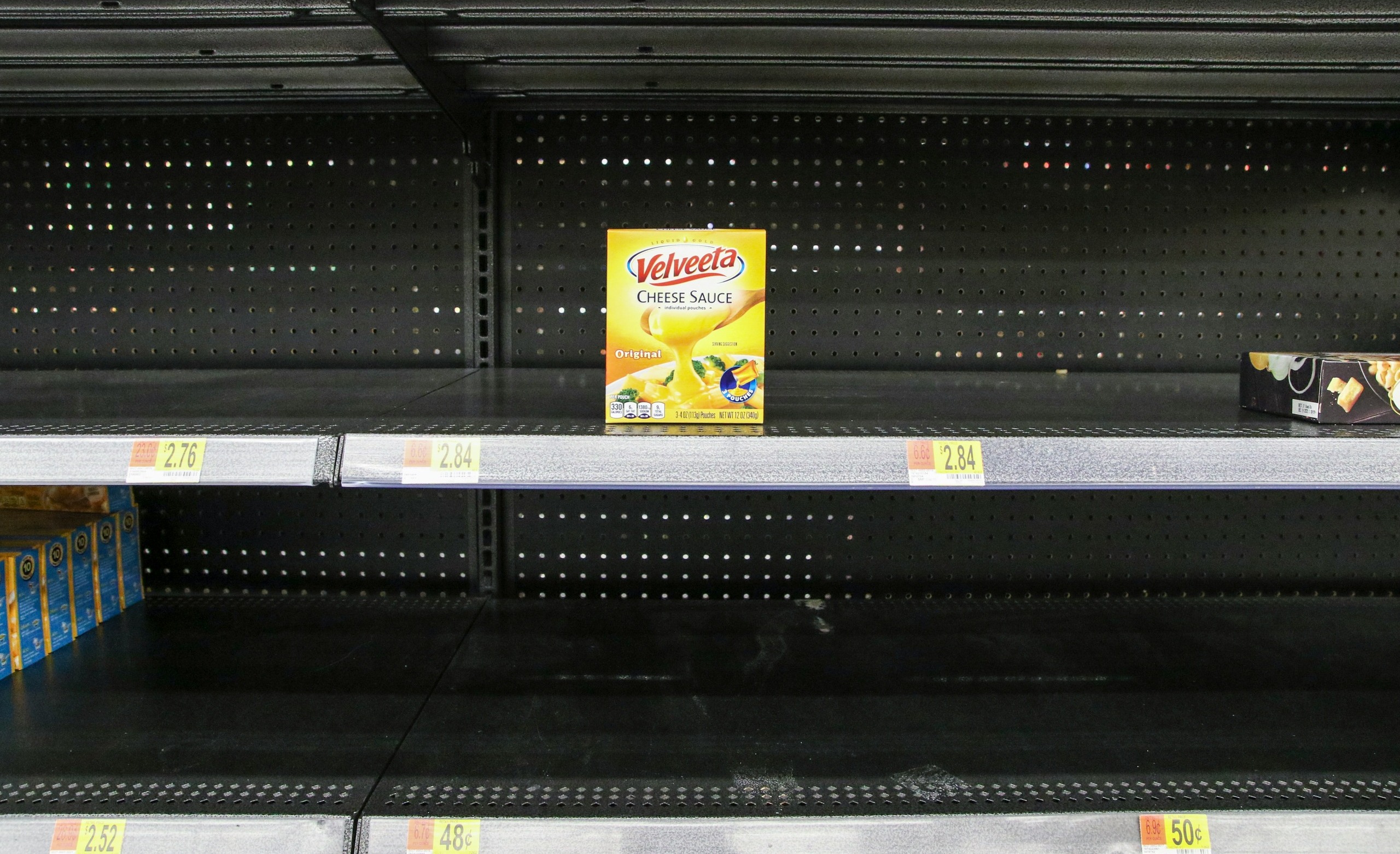
How To Survive A Food Shortage
Welcome to the ultimate guide on how to survive a food shortage. Imagine a world where food shortages are no longer a far-off possibility, but a stark reality that many individuals and communities are facing. The uncertainty of global events and natural disasters has highlighted the importance of being prepared for the unexpected.
In this blog post, we will explore the causes and effects of food shortages and provide you with practical steps on how to survive during these challenging times. So grab a seat, as we dive into the essential knowledge you need to navigate through a potential food shortage with resilience and resourcefulness!
Causes of Food Shortages
Food shortages can arise from various factors, leading to a lack of essential supplies for communities worldwide. One significant cause is extreme weather conditions such as droughts, floods, or hurricanes that disrupt agricultural production and transportation systems. When crops fail due to these natural disasters, it results in reduced food availability and higher prices for consumers.
Another factor contributing to food shortages is economic instability and poverty. In regions where people struggle with low incomes or unemployment, accessing nutritious meals becomes challenging. Limited financial resources prevent individuals from purchasing an adequate amount of food, leading to malnutrition and hunger within communities.
Conflicts and wars also play a role in creating food shortages by disrupting supply chains, destroying farmlands, and displacing populations. The impact of armed conflicts on agriculture can be devastating as farmers are unable to cultivate their lands safely amid violence and unrest.
Furthermore, global issues like population growth and environmental degradation put additional pressure on the food supply chain, exacerbating existing shortages. As the world’s population continues to increase rapidly while resources dwindle, finding sustainable solutions to ensure food security for all remains a critical challenge faced by humanity today.
Effects of Food Shortages
Food shortages can have far-reaching effects on individuals, families, and communities. When essential items like food become scarce, people may experience heightened levels of stress and anxiety. This can lead to increased tensions and conflicts as everyone struggles to secure enough food for themselves and their loved ones.
In times of food scarcity, vulnerable populations such as children, elderly individuals, and those with pre-existing health conditions are particularly at risk. Malnutrition becomes a pressing concern when access to a variety of nutritious foods is limited or unavailable. Physical health can deteriorate rapidly without an adequate supply of essential nutrients.
Economically, food shortages can disrupt local markets and drive up prices due to increased demand and limited supply. This inflationary pressure further exacerbates the challenges faced by already struggling households. Additionally, societal unrest may arise as people grapple with uncertainty about where their next meal will come from.
The effects of food shortages extend beyond mere hunger; they permeate various aspects of daily life and underscore the importance of sustainable food systems that prioritize accessibility for all individuals in society.
Steps to Survive a Food Shortage
When faced with a food shortage, it’s crucial to take proactive steps to ensure you and your loved ones are prepared. One essential step is stocking up on non-perishable foods that have a long shelf life. Items like canned goods, rice, pasta, and dried beans can be lifesavers during times of scarcity.
Another effective measure is to consider growing your own food. Even if you don’t have much space, options like container gardening or vertical gardening can help supplement your diet with fresh produce. Not only does this provide sustenance in times of need but also offers a sense of self-reliance.
Community support and resources are invaluable during a food shortage. Reach out to local organizations, food banks, or neighbors to pool resources and support each other through challenging times. Building strong community connections can make all the difference when facing adversity.
Stocking up on Non-perishable Foods
Stocking up on non-perishable foods is a crucial step in preparing for a potential food shortage. These shelf-stable items can last for an extended period, ensuring you have sustenance during challenging times.
When selecting non-perishable foods, opt for items with long expiration dates like canned goods, dried fruits, nuts, and grains. Don’t forget about staples such as rice, pasta, and beans – they are versatile and nutritious choices to have on hand.
Consider your dietary needs when stocking up. If you have specific dietary restrictions or preferences, ensure you include suitable options in your emergency food supply. Additionally, don’t overlook the importance of having enough water stored alongside your non-perishable items.
Rotate your stock periodically to prevent items from expiring before you can use them. Keep track of expiration dates and consume older products first to maintain freshness and avoid waste.
Having a well-rounded selection of non-perishable foods will provide peace of mind knowing that you are prepared for any unexpected food shortages ahead.
Growing Your Own Food
One of the most empowering ways to survive a food shortage is by growing your own food. Whether you have a backyard, balcony, or just a sunny windowsill, there are options for everyone to cultivate their own fresh produce.
Start small with easy-to-grow vegetables like lettuce, tomatoes, and herbs. You’ll be amazed at how rewarding it is to harvest and enjoy something you grew yourself.
Research local gardening tips and techniques for your specific climate and region. Understanding when to plant seeds and how to care for your crops will increase your chances of success.
Consider joining a community garden if space is limited at home. Not only will you have access to more land for planting, but you’ll also benefit from shared knowledge and resources within the gardening community.
Embrace the opportunity to connect with nature and take control of your food supply by growing your own fruits and vegetables. It’s a sustainable way to ensure that you have fresh, nutritious options during uncertain times.
Community Support and Resources
During a food shortage, community support and resources play a crucial role in ensuring everyone has access to essential supplies. It’s times like these that neighbors coming together can make all the difference.
One way to tap into community support is by reaching out to local organizations or food banks that may be providing assistance during shortages. They often have valuable resources and information on where to find help.
Engaging with your neighbors and building a network of mutual aid can also be beneficial. By sharing resources, creating collective strategies, and supporting one another, communities can navigate through challenging times more effectively.
Don’t underestimate the power of grassroots initiatives within your neighborhood. Setting up community gardens, food cooperatives, or sharing meal prep responsibilities are creative ways to ensure everyone has enough to eat.
Remember, in times of crisis, unity within communities becomes a lifeline for many individuals facing hardship. By coming together and pooling resources, we can overcome food shortages more successfully as a collective whole.
Conclusion: Preparing for the Unexpected
In times of uncertainty, being prepared can make all the difference. By taking proactive steps to survive a food shortage, you not only ensure your own well-being but also contribute to the overall resilience of your community. Remember, stocking up on non-perishable foods, growing your own food, and seeking out community support are crucial strategies in navigating through challenging times.
Stay informed, stay vigilant, and always be ready to adapt to changing circumstances. With these tools at your disposal, you can face any potential food shortages with confidence and resilience. Start preparing today so that you can weather any storm that may come your way tomorrow.




Food shortages occur in many parts of the world. It can be because of unpredictable weather, political unrest, financial crisis or various other reasons. But being prepared for periods of food shortages, can help one survive.
Stocking up on non perishable foods can provide one with a buffer, if one is suddenly faced with a food shortage. But do make sure that you rotate your supplies in your cupboards to prevent being stuck with out of date products. This is a very helpful guide for those that want to prepare for unexpected events, such as a food shortage.
Hello LineCowley,
Thank you for stopping by and sharing your thoughts about surviving a food shortage with us today. Stocking up on food is one of the most important things you can do. I know times are tough and stocking up on food does cost money. However, you can start your food supply by buying extra canned foods each week.
Even if it’s just a few cans a week, it’s a few more cans than you had before. You can also start a garden and grow your own food or you can buy a three month supply of emergency food for around $700. The point here is that we can all prepare the best we can no matter your budget may be.
Best wishes,